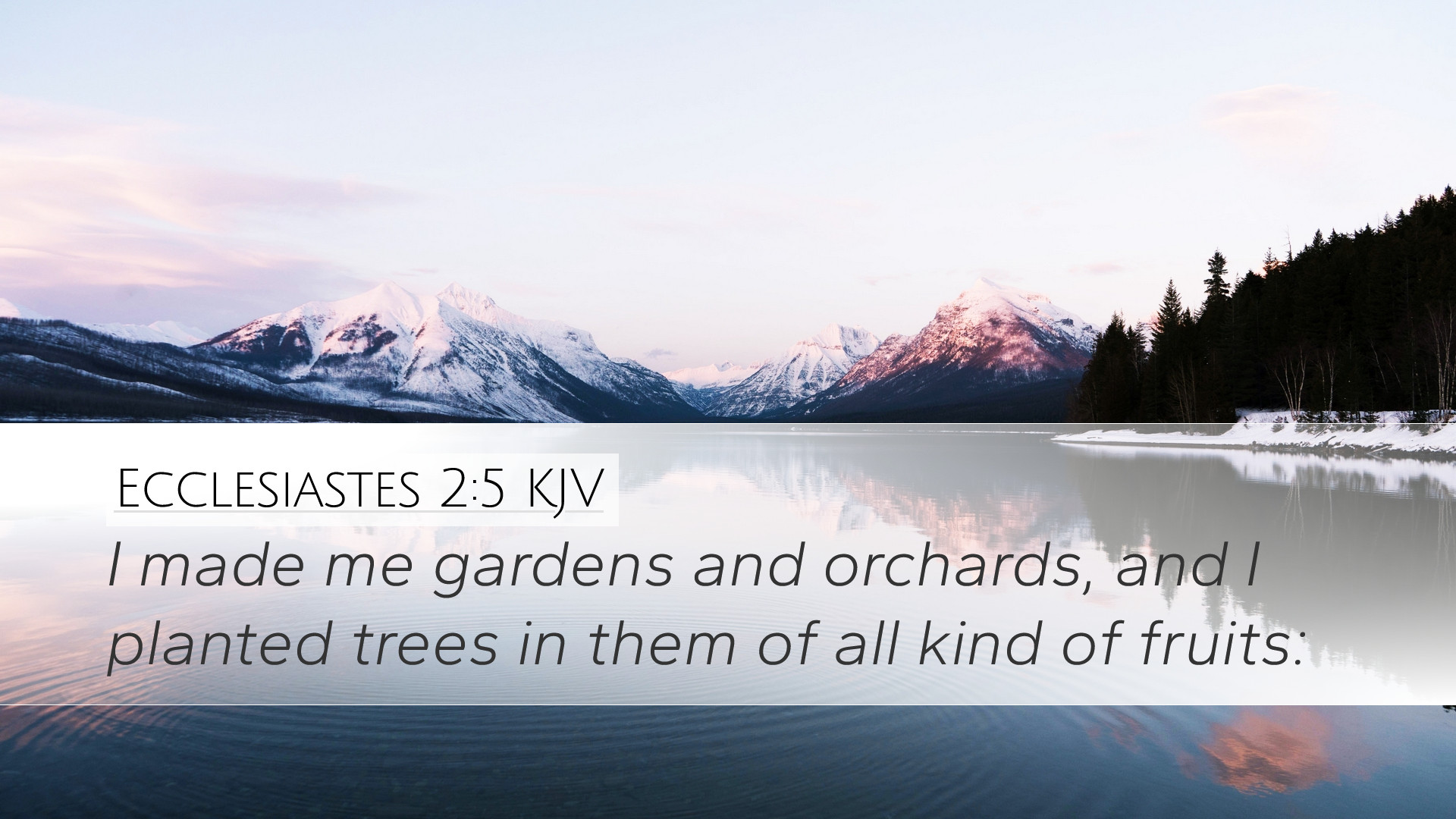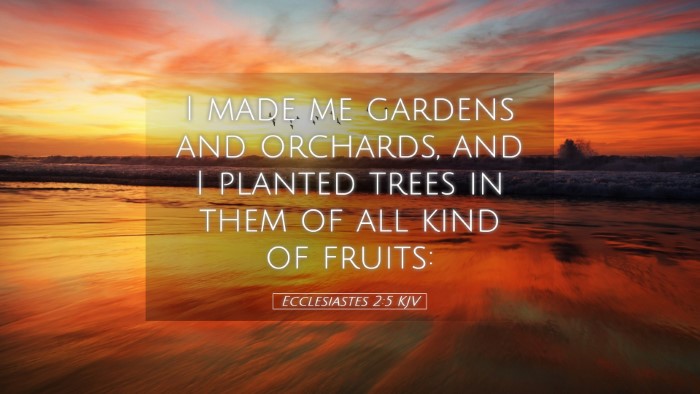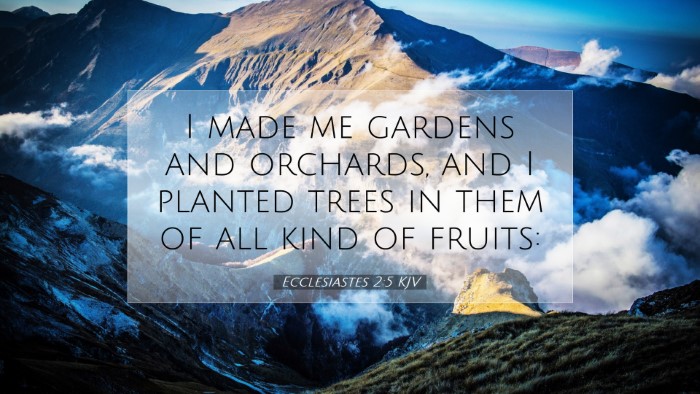Ecclesiastes 2:5 - Commentary and Insights
Ecclesiastes 2:5 (KJV): "I made me gardens and orchards, and I planted trees in them of all kind of fruits."
Introduction
The verse from Ecclesiastes 2:5 presents a glimpse into the pursuits of the Preacher (traditionally believed to be Solomon), reflecting on the efforts taken to cultivate beauty and enjoyment within life. This period of his life showcases a quest for fulfillment through physical endeavors and the creation of personal spaces that evoke pleasure and satisfaction.
Contextual Analysis
The Book of Ecclesiastes operates under a philosophical lens, discussing the meaninglessness of life without divine purpose. The Preacher’s exploration of life includes various pursuits, and here he focuses on horticulture as a means of crafting joy.
In this verse, the imagery of "gardens and orchards" symbolizes industriousness and creativity. Through them, the Preacher looks to establish control over the environment and seek pleasure in its outcomes.
Analysis from Public Domain Commentaries
-
Matthew Henry's Commentary
Henry emphasizes that these gardens are emblematic of natural beauty and the human effort to create spaces that bring delight. He notes that such pursuits are reflective of the desire for both productivity and enjoyment.
Henry further posits that the act of planting gardens is not only a physical endeavor but also a metaphorical expression of humanity's quest for meaning. He looks at the gardens as a representation of the prosperity one seeks in life and warns against the emptiness of such pursuits when detached from a relationship with God.
-
Albert Barnes' Notes on the Bible
Barnes provides a practical interpretation, highlighting the significance of creation and cultivation. He suggests that these gardens represent human creativity and the effort invested in beautifying one's surroundings. This engagement with nature can be perceived as both a blessing and a responsibility.
Furthermore, Barnes critiques the transient nature of such pleasures, warning that even the most beautiful gardens can be temporary and that reliance only on earthly pleasures leads to dissatisfaction. The pursuit of beauty, he argues, should ideally lead one to a greater appreciation of God's creation.
-
Adam Clarke's Commentary
Clarke elaborates on the notion of gardening as a symbol of human civilization and stewardship over the earth. He suggests that the impulse to create gardens mirrors an inherent desire for structure, beauty, and enjoyment in our chaotic world.
Clarke also notes that creating spaces for fruit-bearing trees serves a dual purpose: enjoyment and sustenance. His insights reveal a layer of responsibility that accompanies creation, offering a deeper theological reflection on abundance and gratitude in the face of life's fleeting nature.
Theological Implications
From examining the insights above, it is evident that Ecclesiastes 2:5 calls for a reflection on what it means to live a fulfilling life through the lens of creation and enjoyment. The gardens symbolize not only personal delight but also the broader theological themes of stewardship, creativity, and the pursuit of beauty as reflections of God's character.
This verse invites pastors, students, and theologians to consider theological dimensions surrounding creation and the human experience. As one engages with the environment, the recognition of God's hand in creation becomes pivotal for a meaningful life.
Practical Applications
-
1. Cultivating our Environments
Engagement with our physical surroundings, as exemplified by the Preacher, underscores the importance of stewardship. Communities can take initiative to beautify their neighborhoods, fostering a deeper connection with God's creation.
-
2. Seeking Balance between Labor and Enjoyment
The Preacher's efforts suggest a balance between productive work and the enjoyment of life's simple pleasures. As believers, maintaining such balance can lead to a more fulfilled life that honors God.
-
3. Acknowledging God’s Role in Our Endeavors
In the cultivation of both gardens and personal pursuits, recognizing God’s guidance is crucial. Pastors can encourage congregants to seek a divine purpose in their work, leading to greater satisfaction in all that they do.
Conclusion
Ecclesiastes 2:5 encapsulates a powerful message about the quest for joy and fulfillment through creation. By examining insights from Matthew Henry, Albert Barnes, and Adam Clarke, we gain a multifaceted understanding of the intertwining between human endeavors and divine purpose.
Ultimately, this verse serves as a reminder that while gardens may flourish on their own for a time, it is only through a relationship with the Creator that true meaning and satisfaction can be found.


